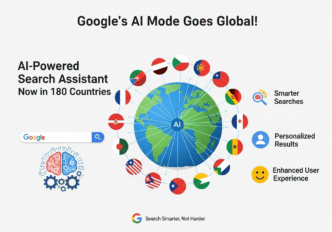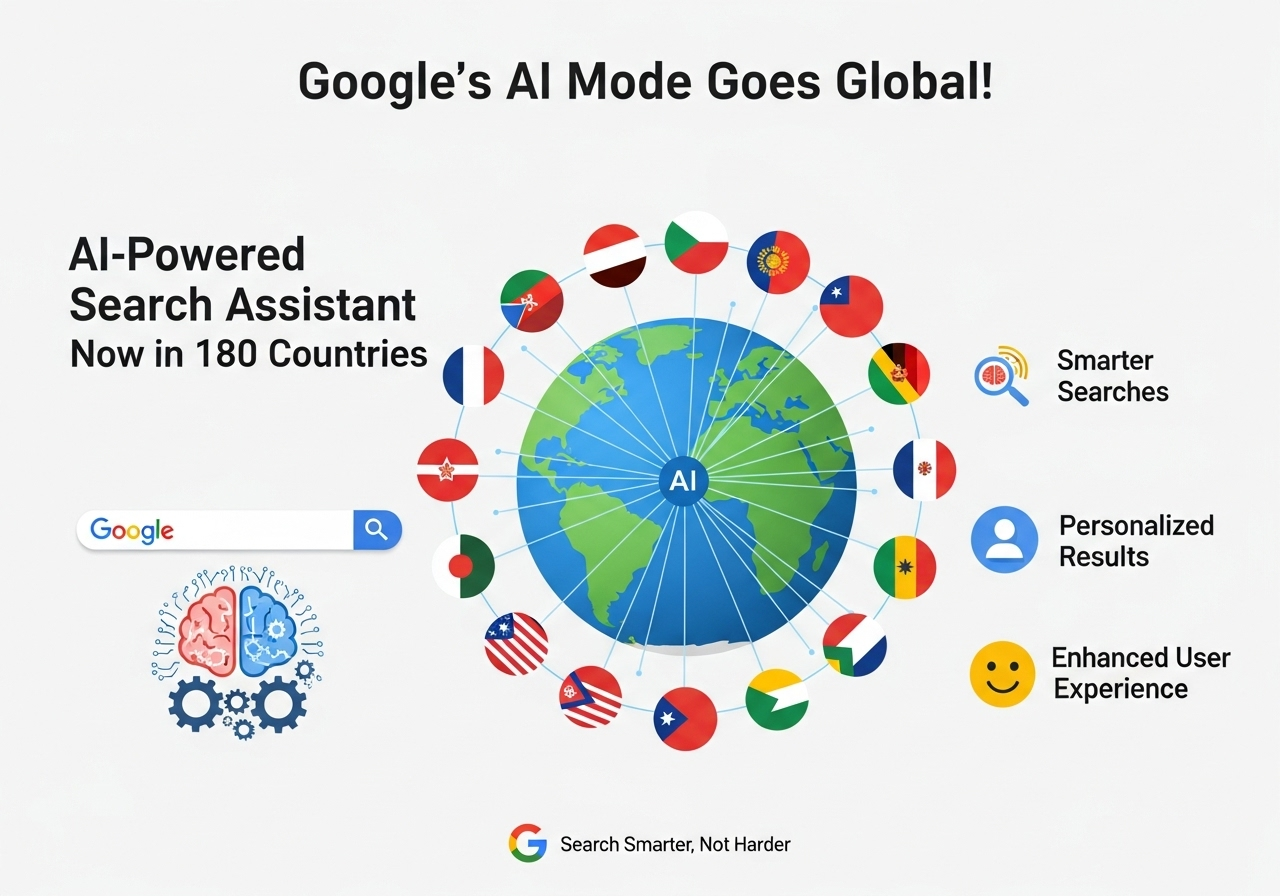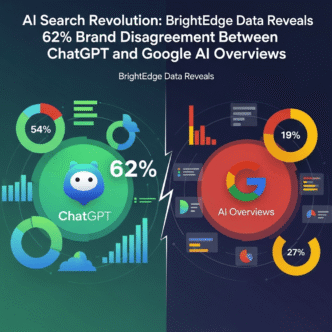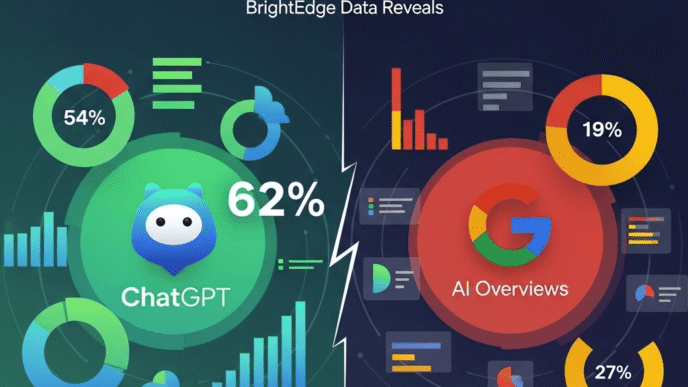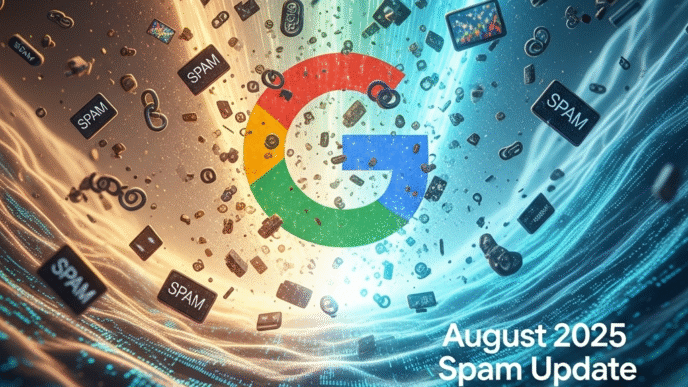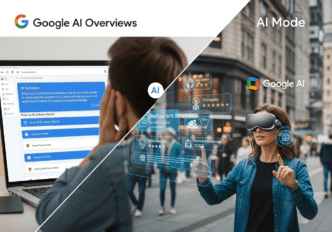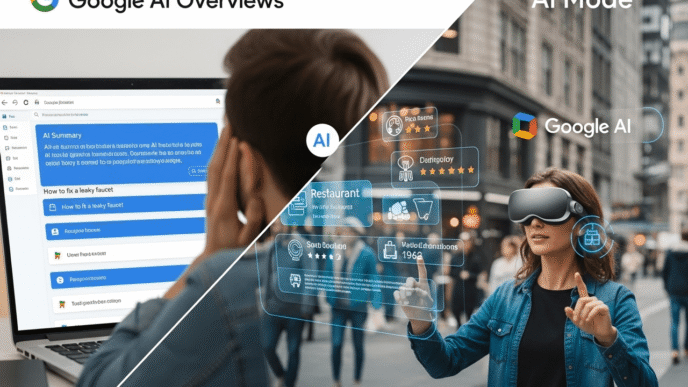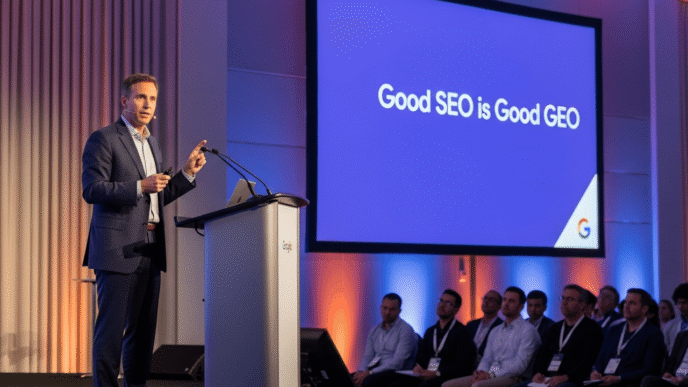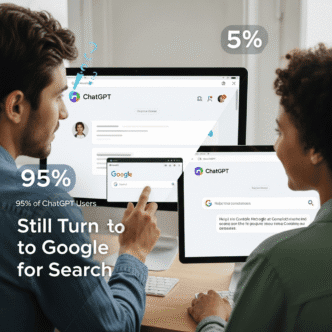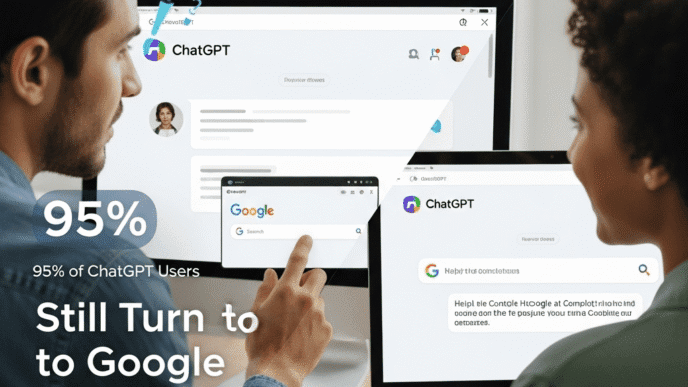Table of Contents
ToggleRevolutionary Search Experience Now Available Worldwide as Google Transforms from Information Finder to Task Executor
August 24, 2025 – In a major leap toward AI-powered search dominance, Google has expanded its groundbreaking AI Mode feature to 180 countries and territories, marking the largest rollout of conversational search technology in the company’s history. The expansion transforms Google Search from a traditional information retrieval system into an intelligent task-completion assistant capable of making restaurant reservations, booking appointments, and executing complex multi-step queries.
The Numbers Tell the Story: AI Search Has Reached Critical Mass
AI Overviews now appear for 10.4% of U.S. desktop keywords—a new high as of March 2025, while Google’s AI Overviews now appear in more than 50% of all search results, marking a major inflection point in the evolution of search. Even more striking, nearly two-thirds of Google searches now end without a click to any website.
The business impact is already measurable. Research shows that there was a correlation between AIO presence and a 34.5% decrease in click-through rates for top-ranking pages, while companies that generate more than 60% of their leads via organic search must anticipate a more delicate transition.
Global Rollout Brings AI Search to Millions
AI Mode is now available in 180 countries and territories, representing a massive scale-up from its initial availability in just three markets: the United States, United Kingdom, and India. The feature currently supports English only, with Google promising expansion to additional languages and regions “soon”.
The rollout timeline shows Google’s rapid acceleration of AI integration: AI Mode launched in the US within Search Labs in March 2025, expanded to India in June 2025, and now reaches nearly the entire globe within six months.
Game-Changing “Agentic” Capabilities Launch
The expansion introduces revolutionary “agentic” features that allow AI Mode to complete real-world tasks on behalf of users. Users can now request restaurant reservations by specifying party size, date, time, location, and cuisine preferences, with AI Mode searching across multiple reservation platforms in real-time to find availability.
The system is powered by Project Mariner’s live web browsing technology, enabling AI Mode to interact dynamically with websites and booking platforms. Google has partnered with major reservation and ticketing platforms including OpenTable, Resy, Tock, Ticketmaster, StubHub, SeatGeek, and Booksy to streamline the booking process.
Expert Insights: The Seismic Shift in Search Behavior
“This represents a fundamental shift from search as information discovery to search as task completion,” said Barry Schwartz, CEO of RustyBrick and founder of Search Engine Roundtable. “Google positions AI Mode as ‘the future of Google Search,'” signaling the company’s vision for how users will interact with information online.
Digital marketing experts are already observing dramatic changes. One in ten U.S. internet users now turns to generative AI first for online search, while AI Overviews now appear in 16% of all Google desktop searches in the United States, fundamentally changing how people find information online.
The Answer Engine Optimization Revolution
Industry leaders are rapidly adapting with a new discipline called Answer Engine Optimization (AEO). Brands typically see 40-60% improvement in AI citations within 3-6 months of implementing AEO strategies, and AEO-optimized content shows 3x higher citation rates compared to traditionally optimized content.
Expert AEO Tips from Leading Practitioners:
Content Strategy Revolution
AI prioritizes content with documented expertise, cited sources, precise methodologies, and quantified data. Stefan Debois from CXL emphasizes: Voice commerce is projected to reach around $80 billion in annual value, illustrating how significant voice interactions have become for businesses.
Technical Implementation
The window for citation is short. Most LLM citations occur within 2–3 days of publishing and can represent up to 2% of all citations in a niche. SEO experts recommend adding author schema (especially for expert contributors) has shown to improve citation of older content.
Performance Metrics That Matter
Many organizations discover 15-25% of their traffic comes from AI crawlers—traffic invisible to traditional analytics. The new success metrics include citation frequency by AIs (manually tested), residual traffic quality (session time, engagement), and thematic authority (mentions in specialized publications).
Personalization and Collaboration Features
AI Mode now delivers highly personalized results by analyzing past conversations, Search history, and Maps interactions to understand user preferences. The personalization begins with dining-related queries, helping users discover restaurants and cafes that match their “unique tastes”.
A new collaborative feature allows users to share AI Mode conversations with others through special links, enabling recipients to continue the conversation and ask follow-up questions. Google suggests this functionality will be particularly useful for collaborative planning tasks like organizing trips or parties.
Premium Access and Market Implications
The advanced agentic features are currently limited to Google AI Ultra subscribers ($249.99/month) in the United States, accessible through the “Agentic capabilities in AI Mode” experiment in Google Labs. This premium pricing reflects Google’s positioning of these capabilities as cutting-edge AI services.
The global AI SEO software tool market is estimated to reach \$4.97 billion by 2033 from \$1.99 billion in 2024, while 47% of marketers are already implementing AI SEO tools to improve search efficiency, and another 84% are using them to identify and leverage emerging search trends.
Impact on Digital Marketing and SEO
The expansion raises significant questions for digital marketers and website owners. Google does not provide separate tracking for AI Mode queries in Search Console, lumping all data together with traditional web search results, making it challenging for businesses to analyze their AI Mode performance.
Industry data reveals concerning trends: some sites losing 20 – 60% of their traffic due to AI Overviews, while traffic impact remains moderate, with a decline between 15 and 25% for most sites in moderate adoption scenarios.
However, success stories are emerging. NerdWallet reported a 35% growth in revenue despite a 20% decrease in site traffic – by ensuring their content and brand expertise still reached consumers through snippets and other channels.
Expert Recommendations for Business Leaders
Immediate Action Items from Industry Experts:
Content Restructuring: Each section must be able to function as an autonomous response to a specific question
E-A-T Focus: Google values content that demonstrates experience, expertise, authoritativeness and trustworthiness (E-E-A-T)
Question-Based Optimization: AI models thrive on well-organized information. For example, a “Pros & Cons” table for competing products or a “Step-by-Step Guide” to using your solution can be a goldmine for AI references
Diversification Strategy: Brands relying on organic search for the lion’s share of their traffic need to rethink their approach. AI-driven search is growing, and marketers need to invest in multi-channel strategies to maintain visibility
Looking Forward: The Future of Search
Gartner predicts organic search traffic will decline by 25% in 2026, making adaptation urgent. Companies that delay AEO implementation can face increasingly expensive catch-up requirements. Competitors are establishing authoritative positions in AI training data and real-time search results.
This global rollout represents Google’s most ambitious attempt to redefine how people interact with information online. By moving beyond simple question-and-answer interactions to actual task completion, AI Mode signals a future where search engines become comprehensive digital assistants capable of understanding context, maintaining conversations, and executing complex multi-step processes.
For businesses worldwide, the expansion means adapting to a new reality where AI intermediaries may increasingly stand between brands and consumers, fundamentally changing digital marketing strategies and customer acquisition approaches.
As AI platforms now influence over half of all online discovery, the companies that establish strong positions in AI search results today will have significant advantages in the AI-driven economy of tomorrow.
This story will be updated as more details become available about AI Mode’s regional rollouts and feature expansions.
Related posts:
- AI Search and SEO: How the Industry is Navigating a “26-Mile Sprint”
- AI Content Does NOT Harm Google Rankings, Massive Study Reveals
- Google AI images PageRank 2025, Google search updates, AI image SEO, Google algorithm news
- AI Search Revolution: BrightEdge Reveals 62% Brand Discrepancy in ChatGPT vs Google AI Overviews

